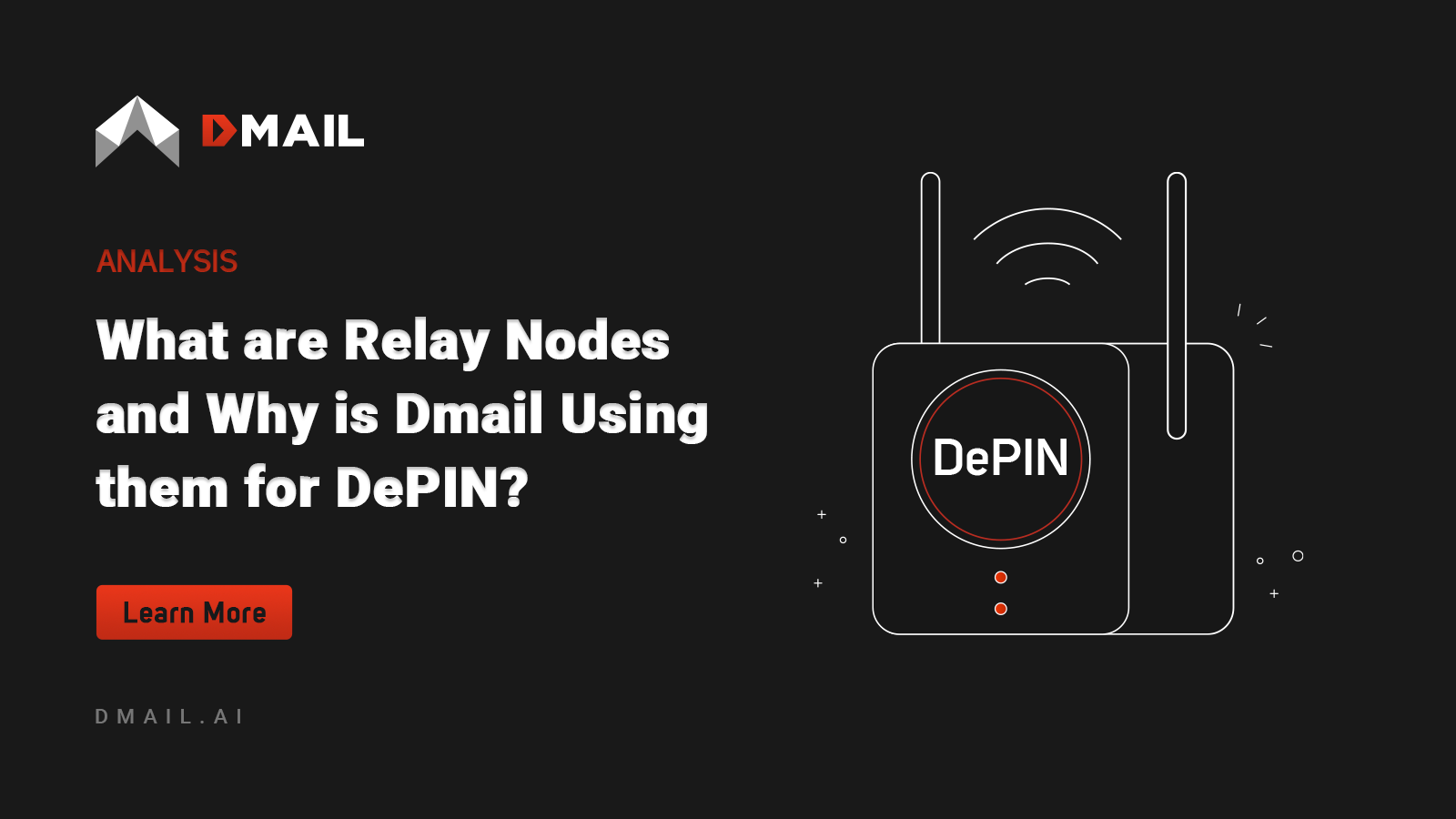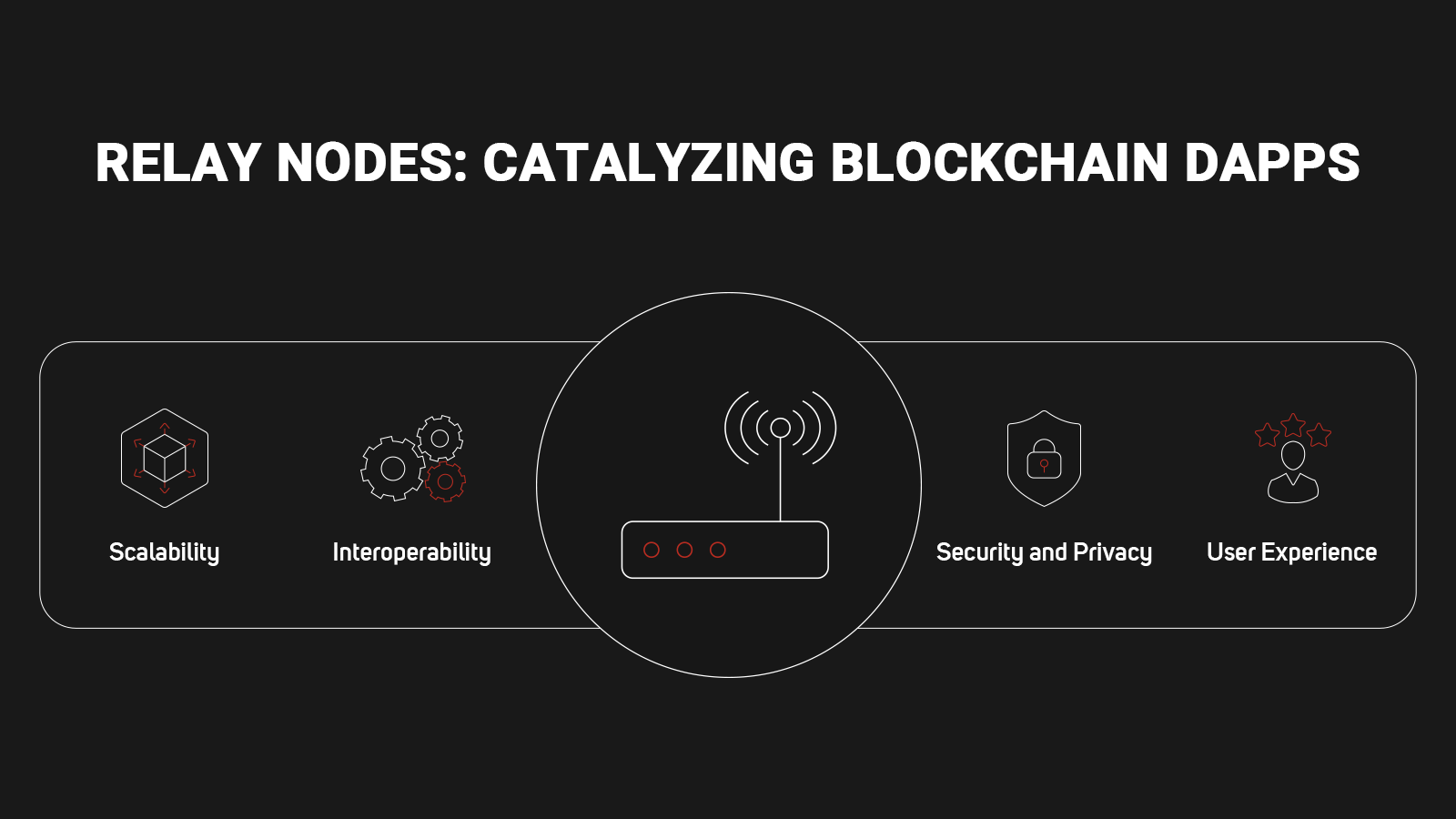What are Relay Nodes and Why is Dmail Using them for DePIN?
Relay nodes, in essence, act as intermediaries that facilitate the transmission of data across a network. In the context of Dmail Network, they serve as the backbone that enables efficient and secure message delivery across various blockchain platforms.

Dmail Network, a pioneering decentralized messaging hub, has placed a strategic emphasis on the deployment of relay nodes in its development roadmap. This focus is not only a testament to Dmail's commitment to advancing Web3 communications but also highlights the pivotal role of relay nodes in the broader context of decentralized physical infrastructure (DePIN).
Understanding Relay Nodes
Relay nodes, in essence, act as intermediaries that facilitate the transmission of data across a network. In the context of Dmail Network, they serve as the backbone that enables efficient and secure message delivery across various blockchain platforms. These nodes perform critical functions such as message validation, encryption, decryption, and routing, ensuring that communications are not only swift but also adhere to the highest standards of privacy and security.
The importance of relay nodes extends beyond their functional benefits. They are integral to achieving a truly decentralized network by distributing the responsibilities of data transmission and processing across multiple nodes. This decentralization mitigates the risks associated with central points of failure and enhances the network's resilience against attacks or censorship.
The Synergy between Relay Nodes and DePIN
DePIN, or Decentralized Physical Infrastructure, represents a foundational shift towards leveraging physical infrastructure in a decentralized manner. By utilizing relay nodes, Dmail Network embodies the principles of DePIN, as these nodes are dispersed geographically and operated by various stakeholders within the ecosystem. This not only ensures a robust and fault-tolerant system but also democratizes the control and management of the network's infrastructure.
The deployment of relay nodes across different regions and environments facilitates a more inclusive and accessible network. It enables Dmail Network to cater to a global user base, ensuring that the performance and reliability of the messaging service are not compromised, irrespective of the user's location.

Relay Nodes: Catalyzing Blockchain Dapps
For blockchain-based decentralized applications (Dapps) like Dmail, relay nodes offer numerous advantages:
- Scalability: They enable the network to handle increased traffic and data volumes efficiently, essential for a growing user base and the expanding scope of Web3 communications.
- Interoperability: Relay nodes can facilitate communication across multiple blockchain platforms, making Dmail a versatile messaging hub that supports a wide range of ecosystems.
- Security and Privacy: By decentralizing the points of data transmission and processing, relay nodes enhance the security and privacy of communications. They ensure that data is not exposed to unauthorized parties and that messages remain confidential.
- User Experience: Relay nodes contribute to a smoother, more reliable user experience by reducing latency and ensuring messages are delivered promptly, regardless of network congestion or other challenges.
Future Prospects and Strategic Partnerships
Dmail Network's roadmap includes not only the implementation of relay nodes but also the exploration of strategic partnerships to enhance the DePIN framework. Collaborations with entities like Phala Network and IoTeX highlight Dmail's commitment to innovation and its role in driving the adoption of DePIN in the Web3 space.
These partnerships will enable Dmail to leverage cutting-edge technologies and expertise in data storage, privacy computing, and decentralized infrastructure. As a result, Dmail Network will continue to set benchmarks for decentralized communication, providing a secure, efficient, and user-friendly messaging solution that stands at the forefront of the Web3 revolution.
In conclusion, the inclusion of relay nodes in Dmail Network's roadmap is a forward-thinking strategy that underscores the project's dedication to leveraging DePIN for enhancing decentralized communication. By prioritizing the deployment of these nodes, Dmail not only aims to optimize its own infrastructure but also contributes to the broader vision of a decentralized, secure, and accessible digital future.

Connect with Dmail: Website | Twitter | Discord | Github | Telegram





Comments ()